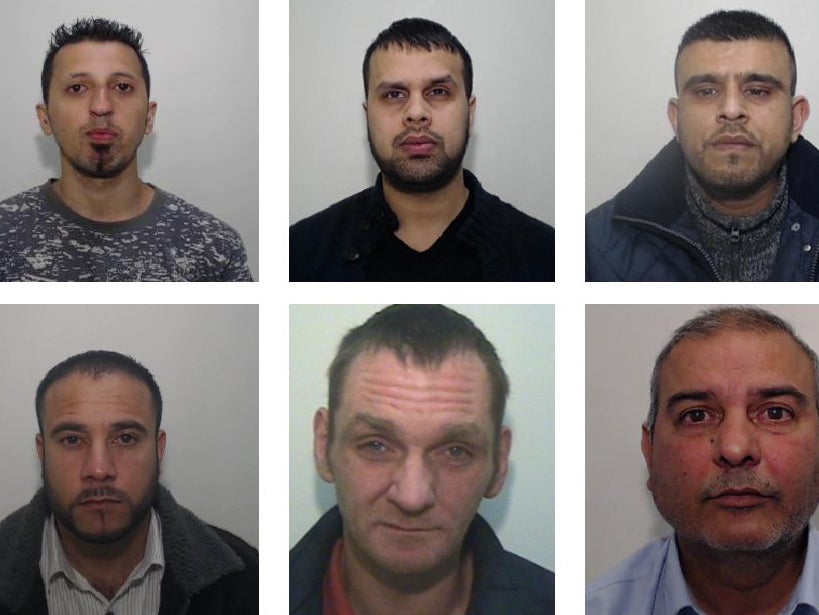I wrote the first ever piece about the grooming gang scandal in northern English towns in 2006 – but the media didn't want to know
As 'Three Girls' airs on television, Julie Bindel looks back on the investigation work she carried out over a decade ago into the prolific child sexual exploitation that took place


Reading the publicity on the three-part TV drama, Three Girls, based on the true story of the teenage victims of organised child abusers in Rochdale, I am reminded not just of the bravery and tenacity of those involved in exposing the levels of organised child abuse in the UK, but also of the cowards and the deniers who for so long refused to accept the harm being done to children by violent exploiters.
Well over a decade ago I was interviewing these “deniers”, and being fobbed off by social workers, police officers, and some newspaper editors who refused to accept the scale of the abuse I and other campaigners (including the mothers of some of the victims) had uncovered.
Many years before the award-winning journalist Andrew Norfolk wrote his first piece about the grooming gangs in northern towns in England, I was investigating this phenomenon. But despite the quality of material I had amassed, it took me until 2007 to get my first piece published because some editors feared an accusation of racism. In this particular geographical area, many of the members of grooming gangs were of Pakistani origin. As a feminist who has always gone after the men who abuse women and girls, whichever social class or ethnic group they belong to, I was concerned that the story would only be told by racists. The British National Party (BNP) had been already been claiming that nasty Muslim “paedophiles” were preying on innocent white girls.
In the early 1990s I became involved with a charity, The Coalition For the Removing of Pimping (CROP), founded in 1996 by Irene Ivison. Ivison’s daughter Fiona was found murdered by a punter in a Doncaster car park in 1993 only weeks after being pimped into street prostitution by local man in Sheffield.
Fiona was 17 years old when she was murdered, but had been groomed by the pimp since she was 14 years old. In desperately trying to get the police and social services to intervene, Ivison had become somewhat of an expert in the way that gangs of men groom girls into prostitution.
Knowing as I did how prolific child sexual abuse was, I began to investigate the pimping of children in northern towns by speaking to the other members of CROP and feminists in child protection agencies. I discovered that the police and social services did not want to know, despite the fact that the parents had gathered some really important intelligence including telephone numbers of pimps and punters found on their daughters’ phones, and the number plates of the fancy cars driven by the pimps and their accomplices.
What I also discovered was that the police and social services appeared to be scared of intervening in these particular grooming gangs, because a large number of the men involved were of Pakistani Muslim origin. The professionals who were turning a blind eye did not want to be labelled as racist, and did not understand that all they had to do was make it clear that the majority of child sexual abusers and pimps in the UK are white men, and that they were abusing children because they were child abusers, not because they were from a particular ethnicity or religion.
Many of these men had been involved in peddling hard drugs in the past, until that became too risky. The girls were simply merchandise. Those of us concerned with the abuse of young girls into prostitution understood that these men were running a business, and the girls were the product. The ethnic origin of the men was irrelevant, but many of them were allowed to get away with the rape and abuse of young girls because of the cowards who would do anything for a quiet life.
When, in 2005, I investigated the disappearance of a 14-year-old girl from Blackpool named Charlene Downes, I discovered that she had been sexually abused by a number of men in the town prior to going missing. When I approached newspapers to commission an article on Charlene’s case I was told by a number of editors that it was “too sensitive” because the men being investigated by police were illegal asylum seekers. My piece eventually did get published in 2008, and no racist attempted to capitalise from it, as they already had been doing so well before then.
Let us not pretend that organised pimping rings and sexual abusers are anything new. This did not start with Rochdale, and unfortunately nor will it end there.
Hopefully, what we will learn from Three Girls is that men who abuse girls and women get away with it because the girls are often seen as “troublesome slags”, and that when state agencies fail the victims of child abuse, the rapists are left to walk free.
Join our commenting forum
Join thought-provoking conversations, follow other Independent readers and see their replies
Comments
Bookmark popover
Removed from bookmarks